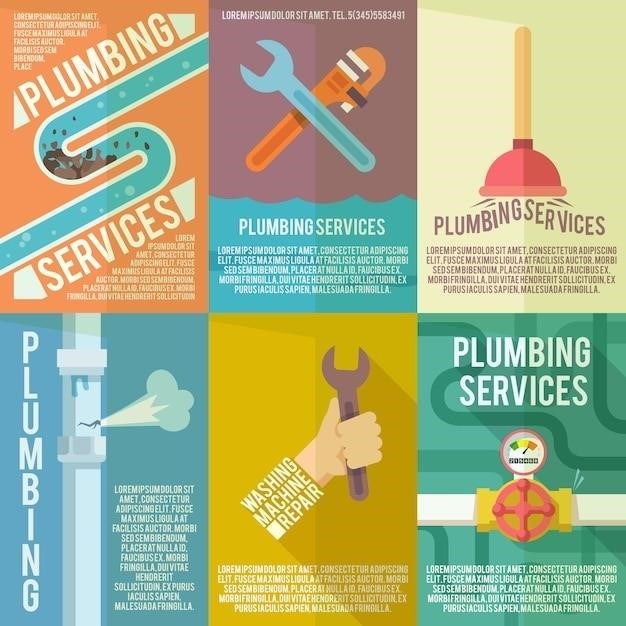Embark on a journey into the future, where technological advancements, societal shifts, and environmental concerns converge. This guide provides insights into the key trends shaping our world, offering a roadmap for navigating the challenges and opportunities ahead. Explore the potential of emerging technologies, understand the evolving nature of work, and discover how sustainability is becoming a critical imperative.
Understanding the Future Landscape
The future is not a fixed destination but a dynamic tapestry woven from emerging technologies, societal shifts, and environmental challenges. To navigate this landscape effectively, we must embrace a forward-looking mindset, understanding the forces that will shape our world. This involves recognizing the exponential pace of technological advancement, particularly in areas like artificial intelligence, robotics, and biotechnology. These innovations have the potential to revolutionize industries, transform our daily lives, and even redefine what it means to be human.
Beyond technological progress, societal trends play a crucial role in shaping the future. As we grapple with issues like climate change, resource scarcity, and global inequality, our values and priorities will inevitably evolve; The need for sustainable solutions, social justice, and inclusivity will become increasingly paramount. Understanding these shifting societal dynamics is essential for developing strategies that foster a more equitable and sustainable future.
Finally, we must acknowledge the inherent uncertainty that accompanies any attempt to predict the future. While technological advancements and societal trends offer valuable insights, unforeseen events and emergent challenges can alter the course of our trajectory. Therefore, adaptability, resilience, and a willingness to embrace change will be vital in navigating the complexities of the future landscape.
The Power of Emerging Technologies
Emerging technologies are not merely tools but transformative forces reshaping industries, economies, and societies. From artificial intelligence (AI) that analyzes vast datasets to biotechnology unlocking the potential of gene editing, these innovations are rewriting the rules of the game. AI, in particular, is poised to revolutionize countless fields, from healthcare and finance to manufacturing and transportation. Its ability to automate tasks, analyze complex data, and even generate creative content is already impacting our lives in profound ways. This transformative power presents both opportunities and challenges, requiring us to carefully consider the ethical implications and ensure that these technologies serve humanity’s best interests.
Beyond AI, other emerging technologies like robotics, 5G networks, and quantum computing are poised to unleash a wave of innovation. Robotics, for instance, is automating tasks in factories, warehouses, and even healthcare settings, increasing efficiency and productivity. 5G networks promise to revolutionize communication, enabling faster data transfer and supporting the development of new applications in areas like augmented reality and virtual reality. Quantum computing, with its potential to solve complex problems beyond the capabilities of classical computers, could lead to breakthroughs in medicine, materials science, and cryptography.
As we embrace these emerging technologies, we must also grapple with their potential downsides. Concerns about job displacement, privacy violations, and the concentration of power in the hands of a few are all legitimate issues that need to be addressed. Finding a balance between harnessing the benefits of these innovations and mitigating their risks will be a defining challenge of the future.
Generative AI⁚ Shaping the Future
Generative AI, a subset of artificial intelligence, is rapidly emerging as a game-changer across diverse sectors. This technology goes beyond simply analyzing data; it creates new content, mimicking human creativity with remarkable accuracy. From composing realistic text and images to generating music and even designing complex simulations, generative AI is pushing the boundaries of what machines can achieve. Imagine a future where AI assists writers in crafting compelling stories, artists in producing stunning visuals, and musicians in composing original melodies. The potential applications are vast, and the impact on our creative landscape is undeniable.
But generative AI’s influence extends far beyond the realms of art and entertainment. In the business world, it’s revolutionizing marketing, content creation, and customer service. It can personalize marketing campaigns, generate targeted content, and even automate customer interactions. In healthcare, generative AI is assisting in drug discovery, medical imaging analysis, and personalized treatment plans. The possibilities are endless, promising to transform industries and improve our lives in countless ways.
However, generative AI also raises ethical questions; Concerns about the potential for misuse, the spread of misinformation, and the impact on creative professions are all valid. As we navigate this exciting new frontier, it’s crucial to develop ethical guidelines and responsible frameworks for the development and deployment of generative AI. Striking the right balance between innovation and ethical considerations will be paramount in shaping a future where this powerful technology benefits humanity.
The Future of Work⁚ Adapting to Change
The world of work is undergoing a profound transformation, driven by technological advancements, evolving societal needs, and a changing global landscape. The traditional model of a stable, long-term job is being challenged, with automation, artificial intelligence, and remote work reshaping the workplace. Adaptability, lifelong learning, and a willingness to embrace new skills are becoming essential for individuals to thrive in this dynamic environment. Companies are faced with the challenge of reskilling their workforce, fostering innovation, and creating work environments that attract and retain talent in a competitive market.
The rise of automation is creating both opportunities and concerns. While automation can streamline processes, improve efficiency, and free up human workers for higher-level tasks, it also raises questions about job displacement. The key to navigating this transition lies in reskilling and upskilling the workforce to fill the new roles that are emerging. Developing skills in areas like data analysis, digital marketing, and software development will be crucial for individuals to remain competitive. Furthermore, the rise of remote work has blurred traditional boundaries, allowing for greater flexibility and geographic diversity in the workforce. This trend is transforming how companies operate, fostering collaboration and communication across borders.
The future of work is about adapting, learning, and embracing change. By investing in education, fostering a culture of innovation, and prioritizing employee well-being, individuals and organizations can navigate the complexities of the evolving workplace and create a more equitable and fulfilling future for all.
Sustainability⁚ A Critical Imperative
Sustainability is no longer a niche concern; it is a critical imperative for the future of our planet and our societies. The urgency of addressing climate change, resource depletion, and environmental degradation is increasingly apparent, demanding a shift in our thinking and actions. This shift requires a holistic approach, integrating environmental, social, and economic considerations into every aspect of our lives, from individual choices to corporate practices and government policies. Sustainability is not just about protecting the environment; it is about creating a more just and equitable world for future generations.
The transition to a sustainable future requires innovation, collaboration, and a willingness to challenge the status quo. Technological advancements play a crucial role in developing cleaner energy sources, reducing waste, and optimizing resource use. Circular economy models, which emphasize reuse, repair, and recycling, offer a promising approach to minimizing waste and maximizing resource efficiency. However, technological solutions alone are not enough. We need to address systemic inequalities, promote social justice, and empower marginalized communities to ensure that the benefits of a sustainable future are shared equitably.

Sustainability is a shared responsibility. Individuals, businesses, and governments must work together to create a more sustainable future. By making conscious choices about consumption, advocating for sustainable policies, and supporting businesses that prioritize environmental and social responsibility, we can contribute to a brighter and more resilient future for all.
The Rise of AI and its Impact on Society
Artificial intelligence (AI) is rapidly transforming our world, with profound implications for society, the economy, and our very understanding of what it means to be human. From self-driving cars to personalized medicine, AI is already having a significant impact on our lives, and its influence is only set to grow in the years to come. The potential benefits of AI are immense, offering solutions to complex challenges in areas such as healthcare, education, and climate change. However, the rise of AI also raises ethical concerns, prompting discussions about its potential to exacerbate existing inequalities, displace workers, and erode human autonomy.
As AI systems become increasingly sophisticated, it is crucial to ensure that they are developed and deployed responsibly. This includes addressing issues such as bias, transparency, and accountability. We need to establish clear ethical guidelines for the development and use of AI, ensuring that it serves the best interests of humanity. Furthermore, we must invest in education and training programs to equip people with the skills and knowledge they need to thrive in an AI-driven world. The future of AI is not predetermined; it is up to us to shape it in a way that benefits all of society.
The rise of AI presents both opportunities and challenges. By embracing its potential while mitigating its risks, we can harness the power of AI to create a better future for all.
The Metaverse⁚ Blending Digital and Physical Realities
The metaverse, a concept that has captured the imagination of technologists and futurists alike, promises to blur the lines between the digital and physical worlds. This immersive, interconnected network of virtual spaces will allow users to interact with each other, participate in virtual experiences, and even create their own digital identities. Imagine attending a virtual concert with friends, collaborating on a project in a shared virtual workspace, or exploring a virtual museum exhibit from the comfort of your own home. The possibilities are seemingly endless.
The metaverse has the potential to revolutionize how we work, learn, socialize, and even shop. It could offer new opportunities for education, entertainment, and commerce, creating a more interactive and engaging digital experience. However, the development of the metaverse also raises important questions about privacy, safety, and accessibility. We need to ensure that the metaverse is designed in a way that is equitable and inclusive, fostering a sense of community and shared experiences for all. The metaverse is still in its early stages of development, but its potential impact on our lives is undeniable.
As the metaverse continues to evolve, it will be crucial to navigate its potential benefits and challenges responsibly, shaping a future where digital and physical realities coexist in a harmonious and enriching way.
The Future of Healthcare⁚ Personalized Medicine and Beyond
The future of healthcare is poised for a transformative leap, driven by advancements in personalized medicine, genetic engineering, and artificial intelligence. Imagine a future where treatments are tailored to an individual’s unique genetic makeup, addressing health concerns with unparalleled precision. This vision of personalized medicine is rapidly becoming a reality, with breakthroughs in gene editing technologies like CRISPR-Cas9 paving the way for more effective and targeted therapies.
The integration of AI in healthcare is revolutionizing diagnoses, treatment planning, and drug discovery. AI-powered systems can analyze vast amounts of medical data, identify patterns, and predict potential health risks, allowing for earlier interventions and more personalized care. Moreover, the rise of wearable technology and remote monitoring systems is empowering individuals to take a more proactive role in their health, enabling preventative measures and better self-management of chronic conditions.
The future of healthcare holds immense promise for improving patient outcomes and extending healthy lifespans. However, it also raises ethical considerations surrounding data privacy, access to technology, and the potential for disparities in healthcare. Navigating these complexities will be crucial to ensure that the benefits of personalized medicine and advanced healthcare technologies are accessible to all.
Navigating the Challenges of Climate Change
The stark reality of climate change is undeniable, and its consequences are already being felt across the globe. Rising sea levels, extreme weather events, and dwindling natural resources are posing unprecedented challenges to our planet and its inhabitants. The future holds a stark warning⁚ if we fail to address this crisis, the impacts will be far-reaching and devastating, affecting every aspect of our lives.
Climate change is not just an environmental issue; it’s a social, economic, and political one. The consequences will disproportionately impact vulnerable communities, exacerbate existing inequalities, and lead to mass displacement. To navigate these challenges, we must adopt a holistic approach, integrating climate considerations into all sectors of society, from energy and transportation to agriculture and infrastructure.

The good news is that we have the tools and technologies to mitigate climate change and build a more sustainable future. Renewable energy sources, carbon capture and storage, and green building practices are just a few examples of how we can transition to a low-carbon economy. But action is needed now, and it requires collective efforts from governments, businesses, and individuals alike.


